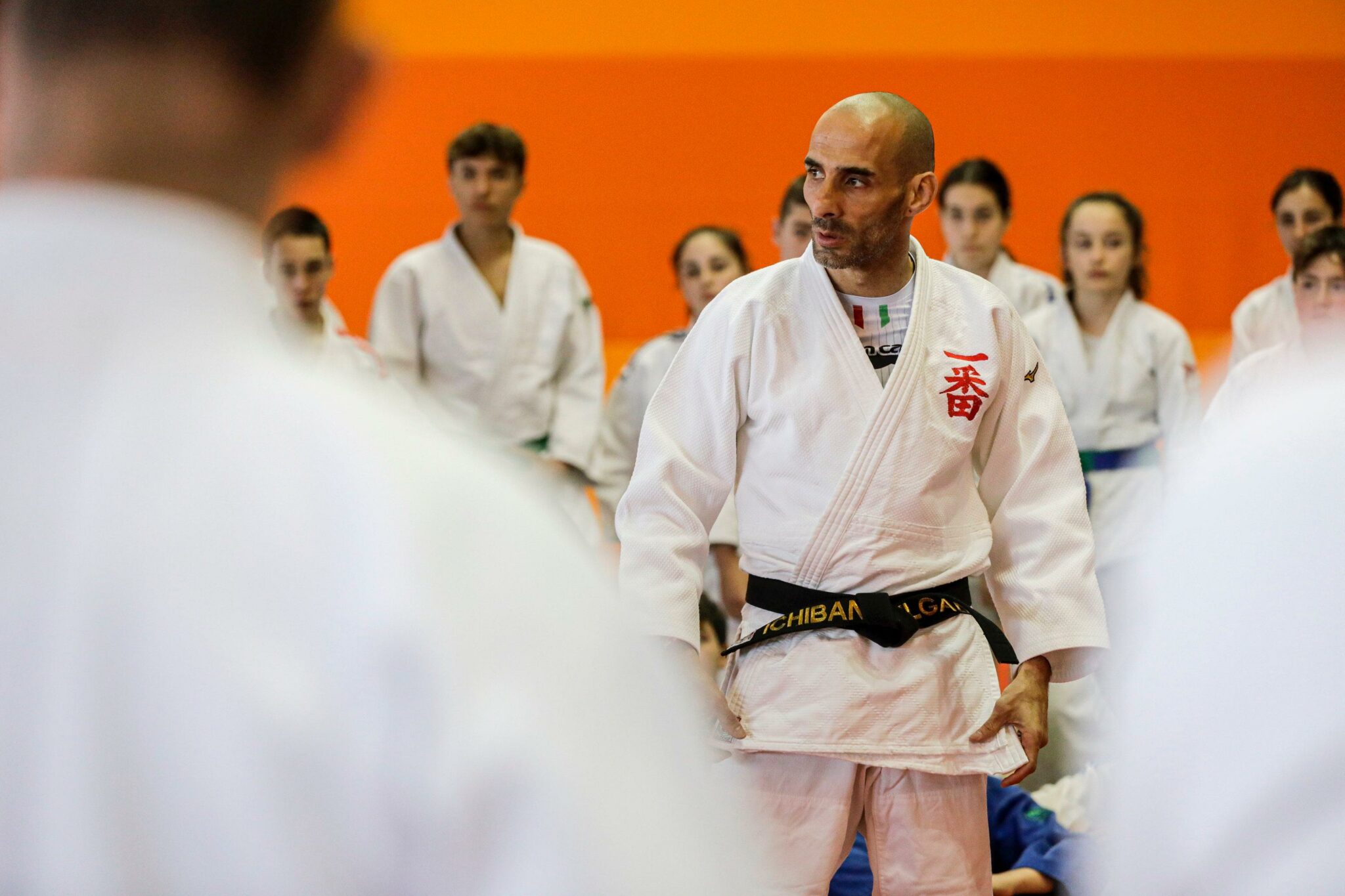In the heart of Móstoles, a spark of legacy, tradition and innovation has come alive. The inaugural edition of Stage Judo Next-Gen “Villa de Móstoles” isn’t just another training event, it’s a movement. At its helm stands Javi Delgado, a coach, mentor, and guardian of judo’s spirit, who has poured his soul into shaping the future of the sport.
To begin with, Javi explains about the origin of the name “Next-Gen,” as his passion shines through immediately: “We chose the name Next Gen, because we thought it was necessary to make a training camp thinking about the next generations, in which it would not be based only on the work of randori but to try to teach the children and young people who attend the importance of learning a good basic judo.”
“Our new generations will be the judo of tomorrow and whether they are dedicated to competition, whether they are dedicated to training another judoka or if they simply want to do judo for their whole life, the importance of these generations making a quality judo will be vital for the future of the judo family.” – he adds.
This belief led to deep conversations among friends and fellow visionaries, such as Angel Parra, José De Mingo, and Javier de Marco. Javi shares more;
“This idea was born after a meeting with three friends… after some long talks about how, and in what way we could contribute something more to the judo family and society whilst focusing on the basics in judo. The idea is making this annual meeting for all the European judoka and the whole world, so that they could share and we could highlight our main idea, that the new generations learn good, quality judo.”
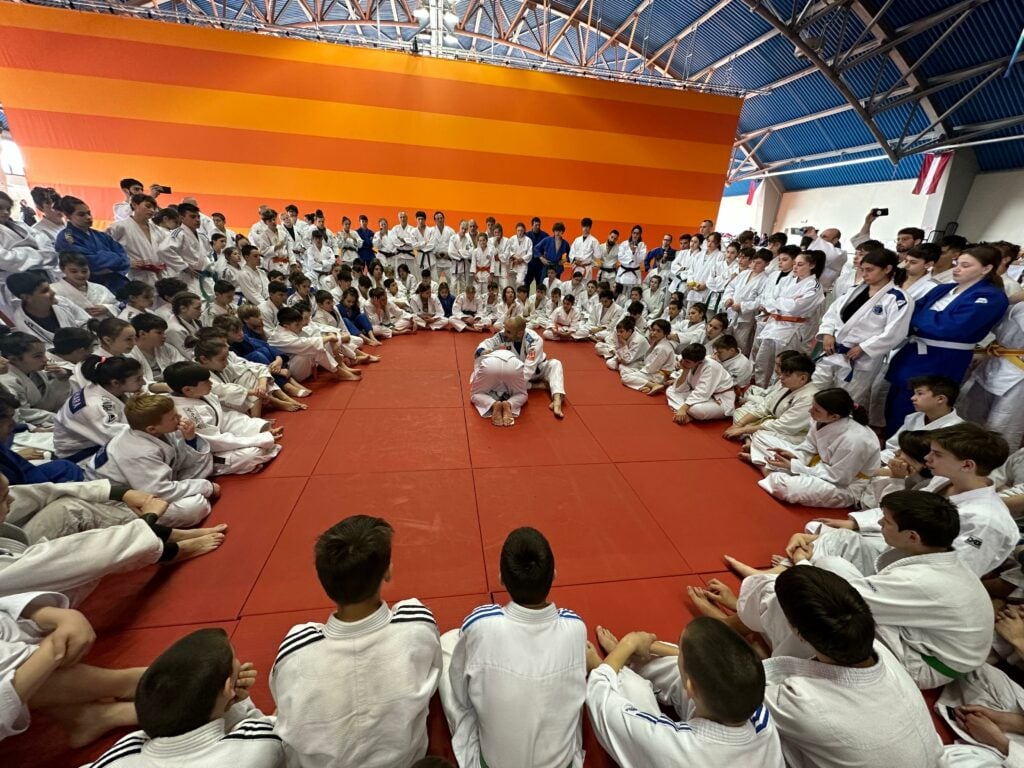
Technology is rapidly developing, and with it, everything around us is changing, including people’s endurance and Javi recognises that when speaking about the development of judo. His reflections on the development of youth in the sport are poignant.
“I think we are living in a generation where everything is expected and achieved quickly. Young people either receive a reward almost immediately or often give up on pursuing their goals. That, to me, is the biggest difference between this generation and the older ones, everything used to require a bit more effort. I am not just talking about winning or earning a belt. Today’s coaching and teaching are excellent but the world around us moves incredibly fast, and I believe that pace has affected judo as well.
“For example, in the past, it was very difficult for us to even watch a video of our idols. Now, in less than a minute, you can find dozens of fights from anyone or access full seminars featuring the biggest stars in the sport. What judo reflects socially now is that everything moves faster, including the tendency to give up.
“That said, the new generation benefits from far better training than we had, and I have great faith that judo will thrive in the years to come.”
Discussing further whilst acknowledging the key feature of this debut edition is the presence of An Baul, a living legend in the world of international judo, Javi explains the decision behind it: “When we thought about Baul to be our special guest we took several things into account. The first of course, his incomparable track record as a competitor. Three Olympic medals in three Olympic Games, it’s crazy!”
But Javi goes deeper than accolades:
“An Baul I think is an example of resilience, of perseverance, of faith and not giving up… He never gave up on working a little more and he above all had faith in himself. Although sometimes there are things that go against, as for example, that he is no longer a young judoka, he has continued to show year after year that his love for judo is stronger than any obstacle.”
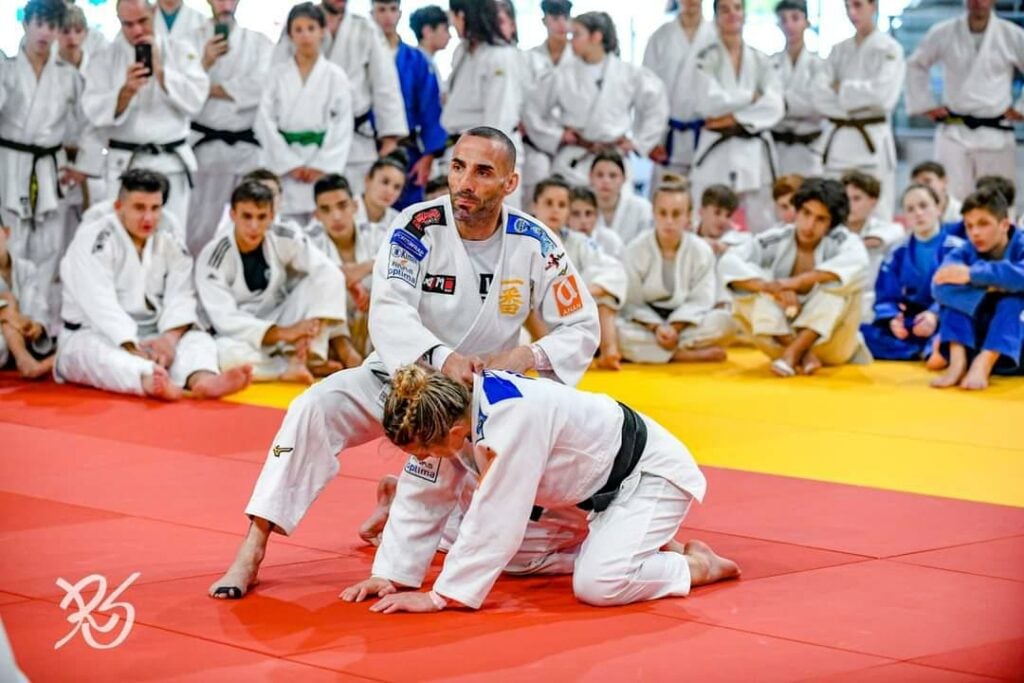
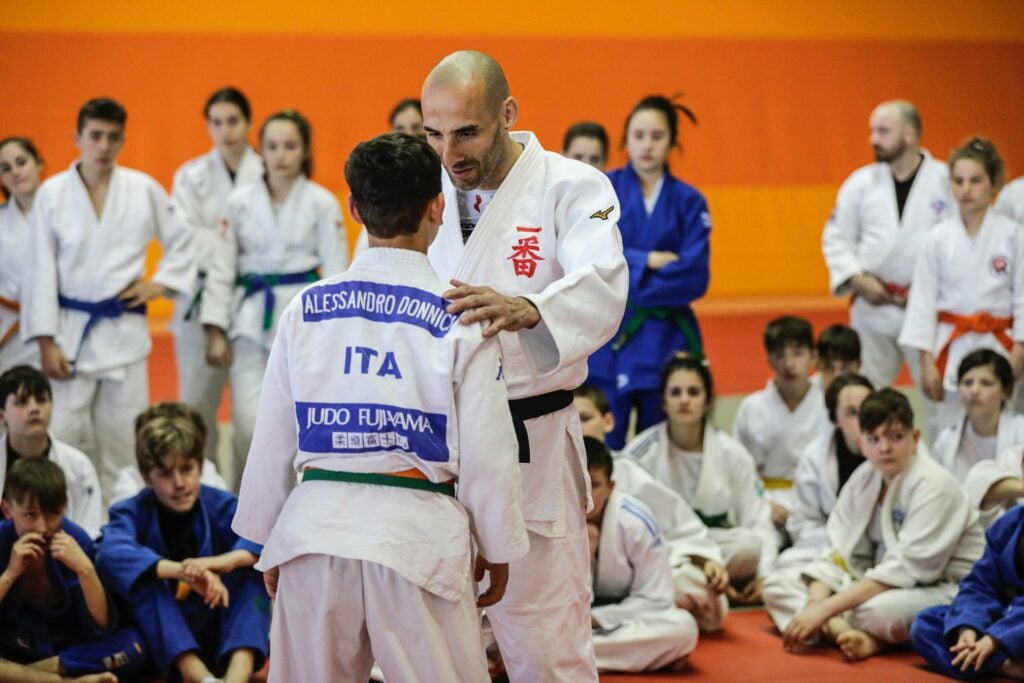
In the world of judo, there are a few nations that have created a ‘signature’ over the decades, and as a result there are techniques that we now refer to as ‘Korean style’, ‘Japanese style’ or ‘Georgian style’, a gripping structure called ‘French style’, and the list goes on. Javi himself has travelled all over the world, both as a competitor and as a coach, and is very familiar with most of them, so he was asked for his personal opinion on European judo vs. Asian judo.
“European judo is more scientific, while Asian judo is the most traditional and romantic. Judo originated in Asia, Japan, and because they created it, we must continue to transmit their rules, preserve their history, and respect their purest vision. These include the values that Sensei Kano passed down, aiming to shape not only better judoka but also better citizens and human beings.”
With reverence for heritage and hunger for evolution, Javi’s philosophy on coaching blends global appreciation with personal identity. The story behind it?
“I was lucky enough to be part of the national teams in the junior categories and travelled all over the world during my formative years as a judoka. This allowed me to see the best and learn from incredible figures, people like Koga Toshihiko, Udo Quellmalz, Nomura Tadahiro, and Israel Hernández became my inspirations as I pursued technical perfection and refined my training.
“From the Japanese, I tried to emulate every gesture on a technical level. In Korea, I learned the vital role of physical preparation in our sport. The French taught me tactical mastery on the tatami and the importance of believing in your process. From the Italians, I admired their professionalism and how they balanced sport with integration into the working world.
“But without a doubt, it was training in Spain where I discovered my own model. With the resources I had, and a relentless drive, I shaped my path through hard work and, above all, an unshakable hunger to be the best, regardless of whether other countries had stronger systems. That mentality gave me my personal style and direction.”
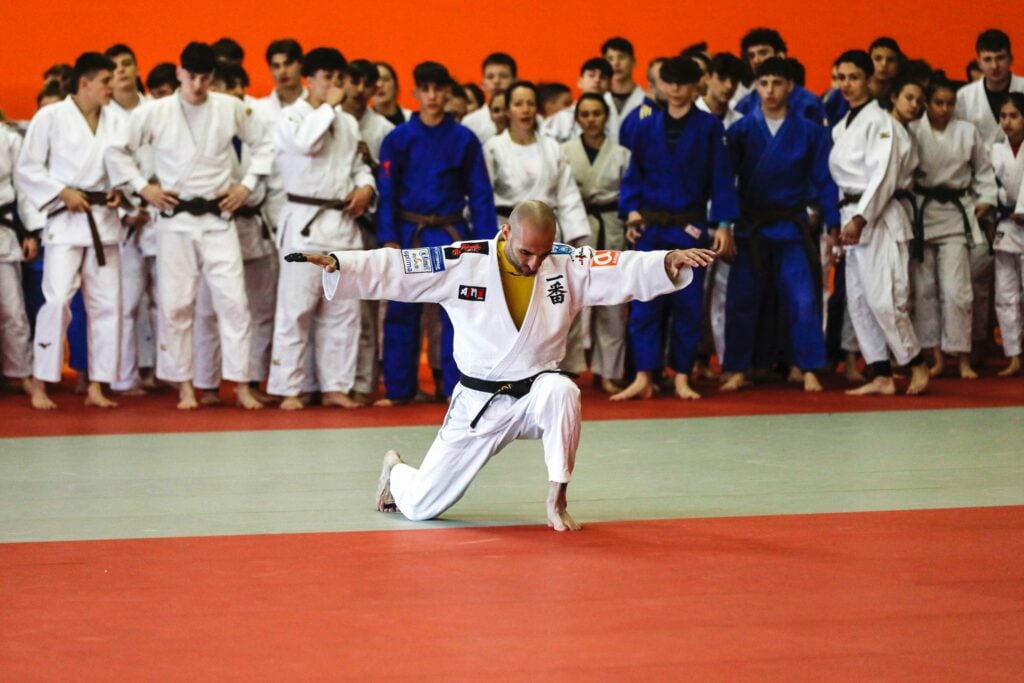
He is clear, his training model is his own, crafted through years of dedication. How does it work in practice?
“I try to take and imitate the best aspects from each style, for example, their approach to making technique both educational and engaging. Don’t get me wrong, it’s not about labelling things as good or bad; it’s about identifying what can help me improve my structure and support my athletes. That said, I have a lot of faith in my own methodology because I have worked hard to develop my own model. Still, I remain committed to continuous learning and always strive to be a better professional.”
As Javi brings his handcrafted methodology and a judo legend with him, he aims for campers to leave Móstoles following Kano’s vision, on and off the mat.
“The value I hope they take away is a very clear message: doing good judo is always a guarantee for the future, whether to compete or simply to be a good judoka throughout life. I have always believed in teaching values through example, my own example.” – Javi says with humility. “I remember seeing Japanese and Korean teachers, many over 70 years old, going to the tatami every single day to train, even just a little. But just putting on the judogi daily and being there with the younger generation is a GREAT EXAMPLE. I hope I can do the same someday.”
“The tatami is a lifelong bond, not just a place for combat. This is the judo family. My best friends were once fierce rivals… and now they are like brothers, sharing sweat in training, conversations on the tatami… that’s the unique beauty of our sport.” – he concludes.
Javi has a unique way of thinking that you don’t find everywhere, and with his determination and skills he is on a mission to support the development of youth and the future of judoka across Europe and beyond, combining the tradition of our sport with the reality of the 21st century.
Images: Roberto Spasaro (RS)/ Javi Delgado
Author: Szandra Szogedi



